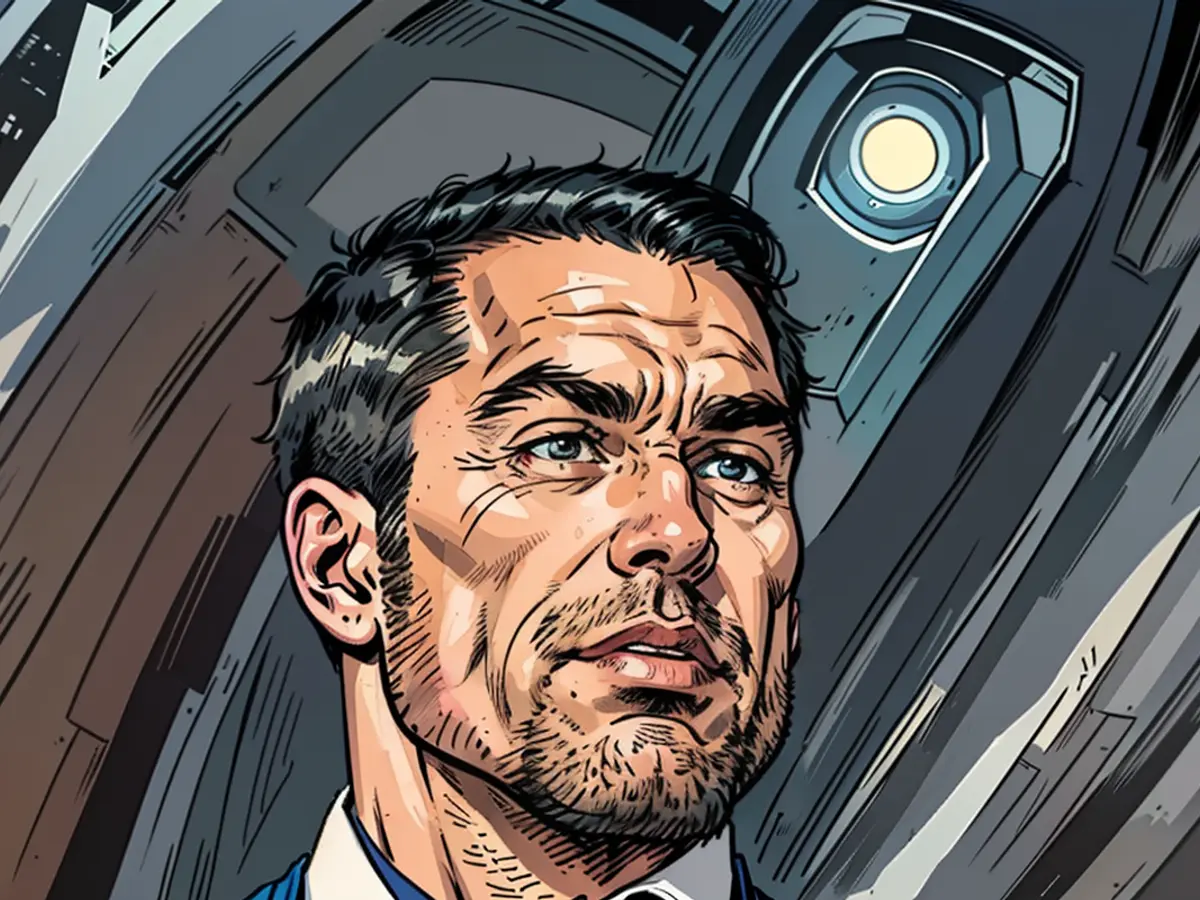Italian political figure Matteo Salvini confronts potential imprisonment for up to fifteen years.
In Italy, Matteo Salvini, a prominent figure in the right-wing populist Lega party and currently serving as transport minister, finds himself facing potential years in prison. He's on trial in Palermo, with potential sentences ranging from 6 to 15 years. This trial has stirred up the nation, with the indictment reading out in court for three hours. However, the case appears to have fallen by the wayside in the current political climate, with many European countries discussing repatriations, scrapping asylum laws, and dealing with migrants suspected of being terrorists.
The trial of Salvini, a coalition partner of Prime Minister Giorgia Meloni, started back in August 2019. At the time, he was serving as interior minister in the Giuseppe Conte government, in coalition with Beppe Grillo's protest party, the "Five Star Movement" (M5S). Both parties agreed to halt migration to Italy, even if it meant drastic measures.
The migrants, then as now, were primarily arriving by boat from North Africa. Lampedusa, Italy's southernmost island, was usually their destination. The navy, coastguard, or even merchant ships would intervene to aid distressed boats, but not always in time. The UN migration agency IOM estimates that up to 26,000 migrants could have perished in the Mediterranean over the past decade.
On August 1, 2019, the captain of the rescue ship Open Arms, operated by the Spanish aid organization of the same name, requested a "safe harbor". They had rescued 124 people, including 32 minors, who were in grave distress at sea. Salvini refused to allow the ship to dock at Lampedusa's port. A legal battle ensued, with the Open Arms only allowed to dock 19 days later, following a court ruling.
"It's elected governments, not judges, that should lead the way"
Salvini, just like in court now, gave similar reasons at the time. First, he argued that the government, being elected by the people, had the right to make decisions about migration, and the courts should not interfere. "It's elected governments, not judges, that should lead the way."
This sentiment echoes through political discussions on RAI television, the state-controlled broadcast station. Salvini had refused to let the Open Arms passengers disembark, he explained, because there might have been "terrorists" among them. The third reason remains a key argument for the Meloni government: "Defending national borders, dealing with a national emergency, and repelling an invasion were necessary."
The Open Arms organization managed to secure a temporary injunction against the Open Arms' sea blockade on August 19. After reviewing the passengers, Salvini's interior ministry reported that there were no terrorists or wanted individuals on board. The Palermo court ruled that Italy has the responsibility to rescue and bring all individuals, regardless of their status or origin, to a safe harbor. Italy had promised to do so through the signing of the maritime rescue convention.
Just before this, a similar decision was reached by the court in Agrigent. In July 2019, German captain Carola Rackete was the subject of the case. All Italian courts agreed that turning away migrants at sea was a clear violation of human rights conventions.
Interestingly, the number of Mediterranean migrants did not decrease but increased the following year, 2020, despite the hardline stance taken. It was only migration agreements with North African coastal countries that significantly reduced this number in subsequent years.
"If Italy expels people at sea or border checkpoints, it should leave UN, EU, and all human rights protection conventions"
Statistics reveal another aspect. Since 2011, only a third of those who arrived in Italy also applied for asylum there. Although they landed in Italy, they filed their asylum applications elsewhere, often in countries beyond the Alps, such as Germany. According to EU regulations, they should have done this in the first country of arrival, i.e., Italy, thus avoiding the issue of deportations.
The Palermo Prosecutor's Office alleges a series of serious legal violations in Salvini and other officials' behavior, potentially including other members of the former government. Salvini's detention of the 143 migrants and crew members was clearly illegal, fulfilling the crime of deprivation of liberty. He did this willfully, disregarding Italian laws and international conventions that allow no interpretation. Government officials should adhere to existing laws. The minimum penalty for this is six years imprisonment. Italian, European, and international law have been severely bent.
"If Italy wishes to turn people back at sea or at land borders, it should leave UN, EU, and all conventions regarding the protection of human rights," said lawyer and author Vitalba Azzolini.
Salvini's lead lawyer, Giulia Bongiorno, is set to deliver the defense plea on October 18. A verdict in Palermo is expected by the end of the year at the latest. Bongiorno was a minister in the 2019 government with Salvini and is now a member of the Italian Senate.
For Salvini, the Palermo trial doesn't necessarily mean a setback in his political career. Initially, he's advocated for nationwide petition drives in Italy against what he views as a "biased" judicial system. Salvini is waging a war against a "liberal" judiciary, which seems to be impeding his role as the frontline defender of borders. We'll see if this moves his waning political support. Salvini certainly hopes so. Silvio Berlusconi managed to boost his political clout for years through similar crusades against a "biased" judiciary.
As a side note, Salvini instantly received backing from a notable figure. Elon Musk took to Twitter, stating that the "nutty prosecutor" should be locked up, not Salvini.
The Commission has expressed its concern over the treatment of migrants in Italy, highlighting the need for adherence to international human rights conventions. In the ongoing trial of Matteo Salvini, the role of elected governments in migration policy and the boundaries between executive power and judicial oversight are under scrutiny.








